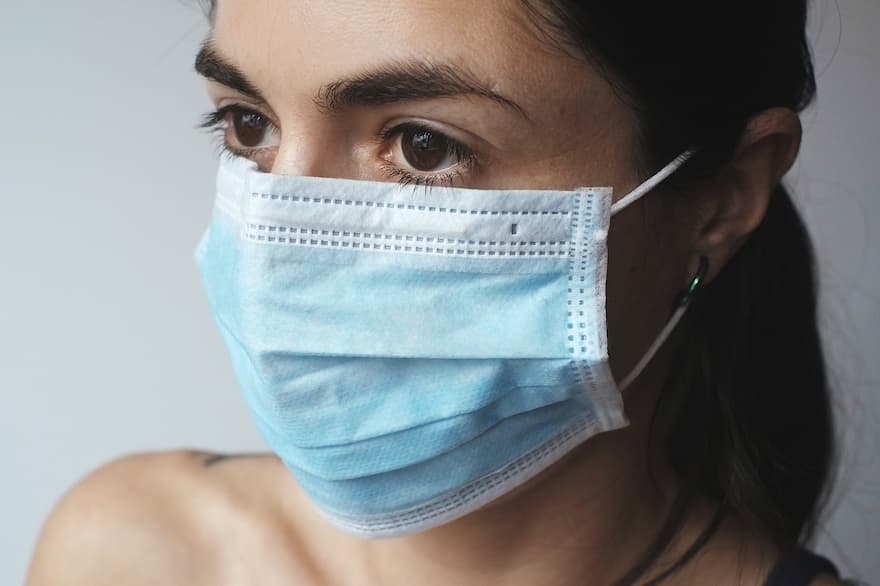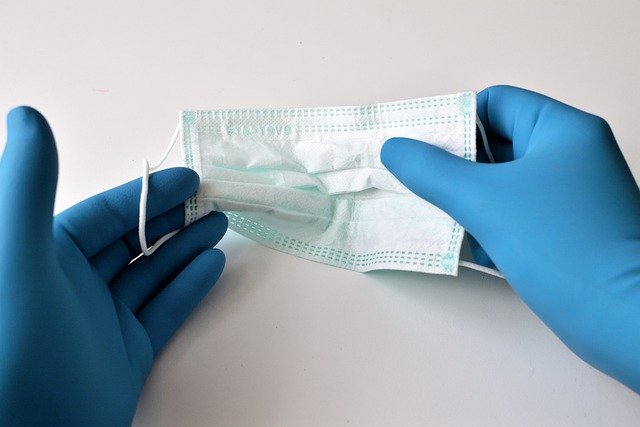
To start with, can you sleep with a mask on?
Yes, you can sleep with a mask on. But you need to keep something in mind. By directly filtering airborne particles at night, we hypothesized that using a mask while sleeping may help children with asthma better control their asthma and maintain healthy lung function.
Patients with allergic diseases are advised to avoid allergens as part of their treatment plan. However, due to the difficulty in regulating allergen exposure levels, clinical trials of allergen avoidance have produced mixed results. Particularly, isolated interventions like encasing the mattress and pillow produced very few favorable outcomes.
For more specific information, keep reading.
Table of Contents
Can You Sleep With A Mask On?
Many people who have Covid-19-caused pneumonia feel anxious, restless, and wear a face mask all day long. Many even wear it while they sleep. Experts claim that doing this work is unnecessary. To avoid breathing in sick people’s droplets, face masks should only be worn when going outside in public.
If it’s a one-time use mask after that, you must discard it, or wash a fabric mask and let it dry in the sun. Wearing a face mask and staying in isolation in medical facilities are required for those who have the coronavirus infection or symptoms.
More than eight hours of face mask use can be harmful. The presence of bacteria and viruses on the mask increases your risk of infection. Furthermore, long-term use of a face mask can cause you to compress your skin, leading to facial blemishes.
Your ability to sleep will be hampered if you wear a face mask because it makes it difficult to breathe. Wearing a face mask while sleeping is not required unless you have the Covid-19 virus. See more about Can You Put Crocs In The Washing Machine?
Potential Benefits Of Sleeping With A Facial Mask Applied
Skin benefits can be obtained from sleeping with a face mask on, particularly if it is designed to be worn overnight.
While thick nighttime moisturizers and overnight face masks are similar in many ways, the former have more active ingredients that work in concert.
Active ingredientsTrusted Source like salicylic, glycolicTrusted Source, and hyaluronic acids target skin concerns, while other ingredients like water make up the mask’s formula or aid the active ingredients’ function.
The benefits of sleeping in a mask include the following:
- They may be particularly hydrating. The ingredients have longer to absorb into the skin, which can be especially helpful for older people because skin loses moisture with ageTrusted Source.
- Studies show that cells replicate and renew overnightTrusted Source, and a face mask helps these cells do this effectively.
- A sealant component is found in some overnight masks, which helps to lock in moisture while preventing dirt and other pollutants from entering pores.
- Many nighttime masks are formulated with calming minerals, vitamins, and other skin-benefiting components.

Is It Harmful To Slumber While Wearing A Face Mask?
It’s still generally regarded as safe to sleep in a mask even if it wasn’t created for overnight use. There are certain things you should be aware of, however:
- Do not sleep in a mask that contains acids or retinol if you are using other skin care products that contain these ingredients. Your skin might become irritated if you do this.
- It might be too drying to use certain ingredients overnight, like clay or activated charcoal. Unless you have extremely oily skin, stay away from sleeping in masks with such ingredients.
- DIY or non-hardening masks may be too runny to wear while sleeping, potentially ruining your pillowcase and linens.
- As alcohol can dry out your skin and harm it, stay away from products containing it.
Tips For Sleeping With An Overnight Face Mask
The majority of store-bought masks come with usage instructions. Test a small amount on your skin before using one to make sure it won’t cause an allergic reaction.
Typically, clean, dry skin is the best surface to apply a mask to. To prevent ruining your sheets, wait until it has dried or hardened before going to bed.
Consider placing a towel over your pillow if the mask is runny and won’t set.
If the mask hasn’t fully absorbed into your skin (like some hydrating masks do), wash it off thoroughly when you wake up.
Conclusion
Several healthy ingredients are combined to create an overnight face mask. Either buy one or attempt to make one yourself is simple.
For overnight use, some masks—referred to as sleeping masks or packs—are created. Although generally safe, you should always test products on a small area of skin first to rule out any potential allergic reactions.
Avoid masks with drying ingredients like alcohol, and if the mask isn’t meant to be worn overnight, make sure the ingredients are mild.



